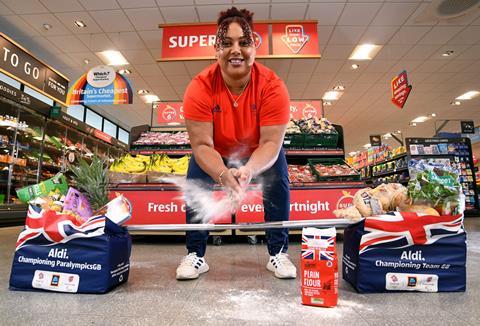
From logo-emblazoned uniforms to extravagant advertising, fmcg brands have always sought to capitalise on the emotional juggernaut that is sport.
The sheer scale of sporting events makes them a unique opportunity to reach significant audiences across the globe. With every eye having been glued to this summer’s events, the competition has been fierce on and off the track as brands vied for marketing gold.
So, what lessons can fmcg brands learn from this summer of sport to beat the competition?
Create a long-lasting impact
Having a brand ambassador can be extremely powerful.
In every sporting tournament, the world falls in love with new superstars. If brands can target the right person going into an event, they can gain an ambassador who will be front and centre of people’s minds.
The nature of the brand ambassador varies from tournament to tournament. With competitions like the Euros, major star power wins. In the Olympics, where seemingly ‘normal’ people achieve superhuman status, abandoning that star-powered approach for something that pulls on the heartstrings might be preferable.
Brands therefore must be flexible in their ambassador approach and tailor it to that unique event.
In a year’s time, things might have moved on, but being associated with a specific moment of sporting greatness via an ambassador is timeless – and priceless.
Another potential avenue is long-term sponsorship. Following a major tournament, there’s a honeymoon period for athletes that have been in the spotlight.
However, that period will end, and brands must put their money where their mouth is to support those athletes and not be accused as having jumped on the bandwagon.
As demonstrated by Coca-Cola’s long-term sponsorship of the Olympics, fmcg brands can become synonymous with a specific tournament, allowing them to build brand equity.
By investing in sponsoring competitions, brands can demonstrate their overall commitment to supporting athletes. This ensures future partnerships come across as authentic.
Reflect the uniqueness of the tournament
This summer’s Euros, Olympics and Paralympics presented a special opportunity for fmcg brands. They brought in a host of demographics – whether core or casual sports lovers, everyone was watching.
Because of their global nature, it’s easy to forget to connect with the local audience and physical crowds at the stadiums themselves. Therefore, brands must tap into the host city’s culture with their marketing.
For example, it’s remarkable how distinctly Parisian these Olympics felt, so brands should align their advertising to seamlessly integrate into the host city’s identity.
Any campaign shouldn’t feel disconnected from the culture in which the event is held; instead, it should embody the city’s unique flair and style, as demonstrated by the BBC’s ‘Welcome to the city of love’.
This cultural alignment helps to create a unified experience that resonates emotionally with the audience. When marketing campaigns feel anchored in the host city, it fosters a sense of connection and emotional investment among viewers, intrinsically linking the brand to the tournament.
A jaw-dropping sum of money is spent on an increasingly crowded sporting event market, and brands shouldn’t be afraid to get their elbows out to steal the limelight.
By implementing a cohesive strategy that encapsulates brand ambassadors, long-term sponsorship and advertising that complements the host city’s culture, fmcg brands can ensure they are enshrined in history alongside the winners.



















No comments yet